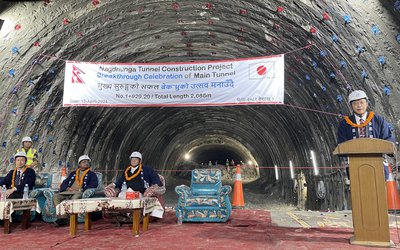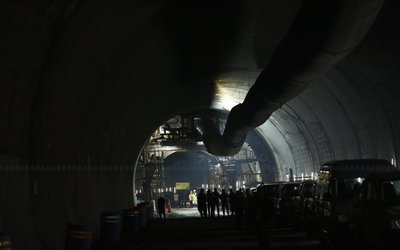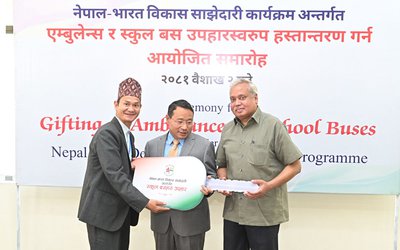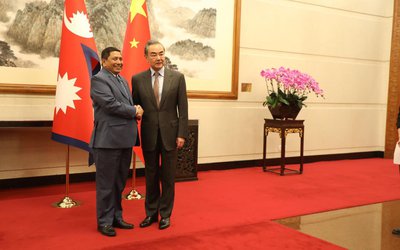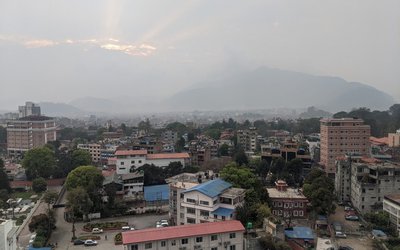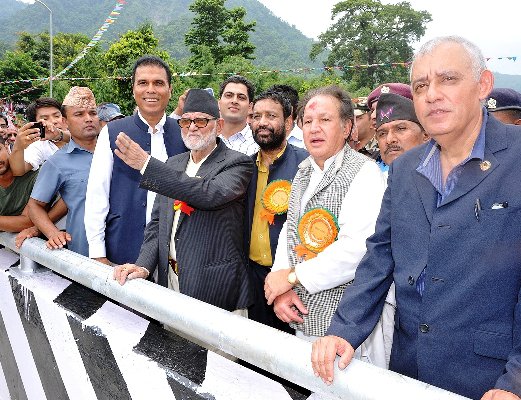
As Ministry of Finance is persuading the international bilateral and multi-lateral agencies to provide grant and loan assistance for new projects, the performance of the ongoing projects has been a barrier.
If the progress and performance of ADB supported projects are any indication, it shows that Nepal has enough money for another 15 years. According to Asian Development Bank, a large portion of the portfolio, equivalent to $1090.9 million (56) percent, is still to be contracted and as much as $1426.5 million of them are yet to be disbursed.
With political leadership engaged in the constitution making process, growing judicial activism and parliamentary activism as well as frequent involvement of Commission of Investigation of Abuse of Authority and politicization of bureaucracy have weakened Nepal’s overall administrative capabilities.
As bureaucracy is virtually non-functional and political interference continues, transfers of project managers are frequently causing problems. Thus, the projects have failed to achieve their progress.
Efforts in vain
Despite many efforts expended on Melamchi Water Supply Project, it is not making progress as per the target for its completion by 2016. In over 14 years, out of 28 kilometers, the project has just completed 14 kilometers. The current speed of digging tunnel shows that it is unlikely to be completed in the next one year.
Another infrastructure project, Tribhuwan International Airport upgrade is in limbo. Chosen through international bidding, the contractor failed to carry out the work as scheduled. The stat of the project is that the government either has to terminate the contract agreement with contractor or push for speedy work. The power projects particularly, the transmission line projects are virtually not moving either.
Melamchi Water Supply Project is suffering from the delay in decision-making and weak project management capacity. The project, which started in 2000, has missed several deadlines. The project has also seen some disruptions in its tunnel works due to the earthquakes and landslides triggered by the quakes.
These are a few examples. Due to political instability and indecisiveness, other flagship projects funded by Asian Development Bank are facing challenges and are being delayed.
“In order to accelerate the implementation of these problematic projects, we need more in depth problem diagnosis and employ proactive remedial actions,” said Hun Kim, Director General of Asian Development Bank.
At a time when the government’s budget utilization in fiscal year 2015 is low at 85 percent of the budget amount for recurrent and only 74.2 percent for capital expenditures, it is natural to see the lackluster performance in ADB projects.
“The issue of low capital expenditure is closely associated with our low absorptive capacity as opposed to the resources availability,” said Suman Sharma, secretary at Ministry of Finance. "The assistance by ADB and World Bank accounted for more than 50 percent of capital expenditure over the past years. Therefore improvement in the performance of ADB portfolio can have visible impacts on percentage of capital expenditure.”
However, everything has not gone wrong. Some projects are also doing well. High Mountain Agribusiness and Livelihood is performing well. Similarly, some projects in the Ministry of Urban Development are moving ahead.
“ADB is ready to provide further assistance depending on the country demonstrating improved absorption capacity. However a strong government leadership is needed to improve the country’s absorption capacity,” said DG Hun Kim.
In a Tripartite Portfolio Review (TPRM) meeting recently, senior officials from Asian Development Bank and government officials agreed to take the necessary steps to accelerate the progress.
“We need to improve the project performance. Ministry of Finance will take the necessary steps to improve the portfolio performance in the coming year,” said Madhu Marashini, chief of Foreign Aid Division, and Ministry of Finance. "To meet the resource demand for our development endeavor, it is essential that Nepal maintain the project performance rating of ADB projects at higher level."
ADB has ongoing portfolio of 1.95 billion dollars, 26 loans and 26 grants projects. Portfolio Performance in General has suffered with prolonged procurement process, weak project management capacity, and weak performance of consultants and contractors.
As of 30 June 2015, a large portion of the portfolio, equivalent to $1,090.9 million (56 percent) is still to be contracted and as much as $1426.5 million (73percent) of them are yet to be disbursed.
The contact award and disbursement projection for ADB assisted project program for 2015 were agreed for 242.8 million dollar and $210.6 million respectively including the program loans. As of 30 June, the contract award has reached just $55.5 million (23 percent against the annual target and disbursement is 46.1 million (22 percent against the annual target)
Participants of the program attributed slow work performance of ADB-funded projects to disappointment in spending, delay in project implementation, irresponsible contractors and similar old problems like land acquisition and forest clearance, among others.
Due to land acquisition, procurement act and delay in forest clearance, ADB-funded projects in energy, transport, airport expansion, and drinking water supply sectors are delayed.
Delay in procurement affected the Khimiti-Barhabishe 220/400 KV transmission line projects. Similarly, delay in issuance of general construction license and transmission survey license, seeking approval for forest clearance and land use delayed Tanahu Hydropower Project, according to a report prepared by ADB.
The issue behind the delaying of South Asia Sub-regional Economic Cooperation (SASEC) Power System Expansion Project is also the same. Budget spending in energy projects have remained very low despite allocation of huge amount of resources in the sector.
According to Asian Development Bank, a total of Rs 33 billion was earmarked for energy sector in the last fiscal year. However, NEA spent below one-third.
Likewise, projects on transportation also faced similar woes. Kathmandu Sustainable Urban Transport Project, a project of $30.42 million, aims to reform the transportation system in Kathmandu by reducing the use of private vehicle in future and providing more convenient, comfortable, reliable and safe public transportation system. But the project is getting delayed due to delay in signing contracts, implementation of pilot routes for public transport component, and frequent transfer of the project staffs.
Dipak Shrestha, project director of Kathmandu Sustainable Urban Transport Project, said they have already asked the contractor and consultant to improve their work performance.
Baburam Paudel, project director of Air Transport Capacity Enhancement, said 94 percent of project cost has remained unspent even though 35 percent of project time has already elapsed. "The contractors have not furnished satisfactory clarification on why their work performance is low," said Paudel.
At a time when projects financed by Asian Development Bank are running at a slow pace, timely completion of Koshi Bridge, which was built with ADB support, to help restore connectivity and livelihoods, in schedule has given a sigh of relief.
The bridge was built with financial assistance from the Asian Development Bank (ADB) as an alternative to the Koshi Barrage which was badly damaged by the monsoon floods of 2008. The 261.3-meter-long and 7.5-meter-wide bridge was built at a cost of $11 million, as a part of the Emergency Flood Damage Rehabilitation Project.
“The Koshi Bridge serves as an important strategic link in expanding transport connectivity within the country and beyond, including with India and Bangladesh. This reduces future risk from similar flood disasters, and is an application of the concept of build back better,” said Kenichi Yokoyama, ADB’s Country Director for Nepal.
“With mutual efforts by the government and ADB, the bridge was completed within the scheduled time of three and half years and the projects are now successfully completed by restoring livelihoods and building resilience.”
The completion of Kosi Bridge was a jubilation for Nepal as well as Asian Development Bank as ADB’s senior officials threaten to pull out the funding from Nepal in case they failed to meet the deadline in other projects.
- TANAHU HYDROPOWER PROEJCT: A Significant Achievement
- Apr 15, 2024
- AMBASSADOR HANAN GODAR: Sharing Pain With A Nepali Family
- Mar 30, 2024
- VISIT OF KfW AND EIB TO NEPAL : Mission Matters
- Mar 25, 2024
- NEPAL BRITAIN SOCIETY: Pratima Pande's Leadership
- Mar 24, 2024
- NEPAL ARMY DAY: Time To Recall Glory
- Mar 15, 2024

